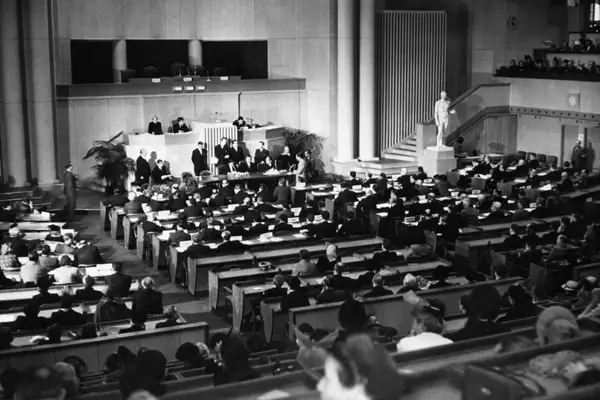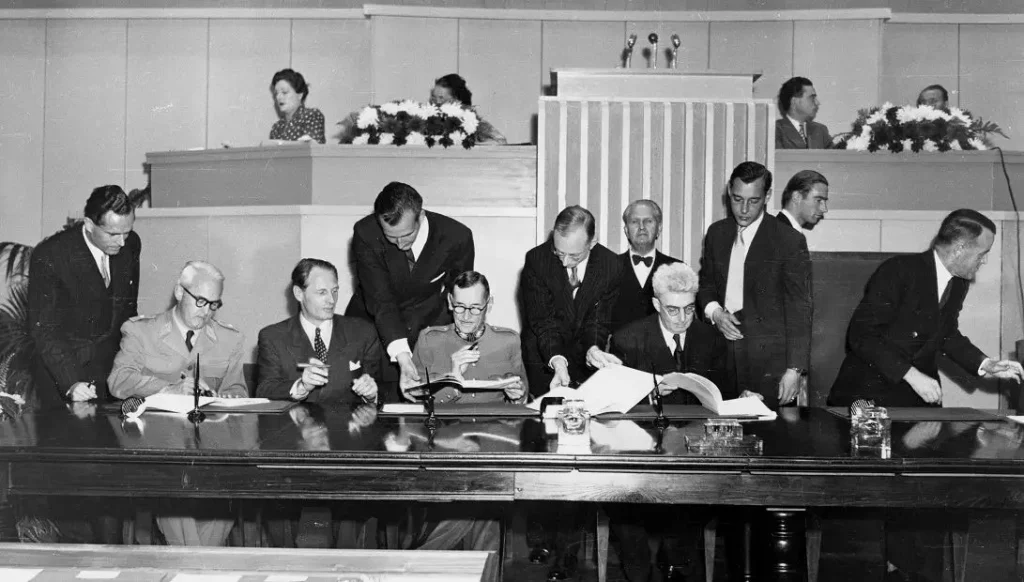The Geneva Conventions of 1949, a cornerstone of international humanitarian law, recently celebrated their 75th anniversary.
About the Geneva Conventions of 1949:
- It provides specific rules to safeguard combatants, members of the armed forces, civilians, medical personnel, etc., who are wounded or sick or shipwrecked or have became prisoners of war.
Origins and Development:
- Initiated by Swiss businessman Henry Dunant, leading to the first Geneva Convention in 1864.
- The 1949 Geneva Conventions expanded and formalized the principles established in previous treaties.
Core Principles:
- First Convention: Protects wounded and sick soldiers on land.
- Second Convention: Protects wounded, sick, and shipwrecked military personnel at sea.
- Third Convention: Sets rules for the treatment of prisoners of war.
- Fourth Convention: Protects civilians in wartime, especially those in occupied territories.
- India has ratified all four Geneva conventions 1949.
Additional Protocols:
- 1977 Protocols: Extended protections to cover conflicts involving non-state actors and enhanced civilian protection.
- 2005 Protocol: Further refined protections and regulations.
Ref: Source
| UPSC IAS Preparation Resources | |
| Current Affairs Analysis | Topperspedia |
| GS Shots | Simply Explained |
| Daily Flash Cards | Daily Quiz |
Frequently Asked Question:
What is the purpose of the Geneva Conventions of 1949?
The purpose is to provide specific rules to safeguard combatants, members of the armed forces, civilians, medical personnel, prisoners of war, etc., who are wounded, sick, shipwrecked, or captured during armed conflicts.
Who initiated the Geneva Conventions?
Swiss businessman Henry Dunant initiated the Geneva Conventions, leading to the first convention in 1864.
What do the 1949 Geneva Conventions expand and formalize?
The 1949 Geneva Conventions expand and formalize the principles established in previous treaties regarding the protection of individuals during armed conflicts.
What are the core principles of the Geneva Conventions?
The core principles include protecting wounded and sick soldiers, military personnel at sea, prisoners of war, and civilians in wartime, especially those in occupied territories.
What does the Fourth Convention of the Geneva Conventions protect?
The Fourth Convention protects civilians in wartime, particularly those in occupied territories, ensuring their safety and well-being during armed conflicts.




